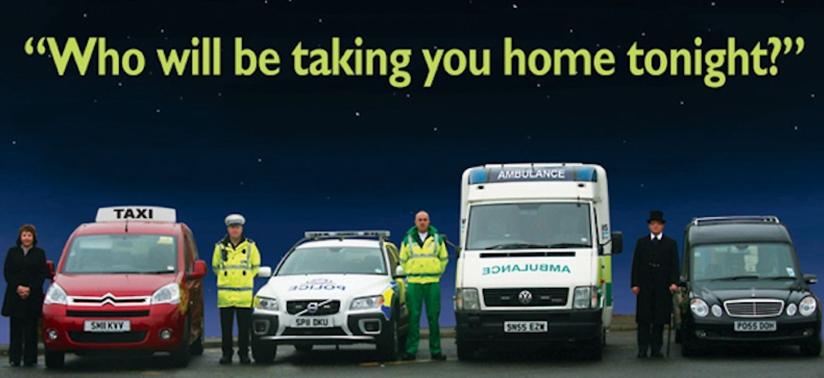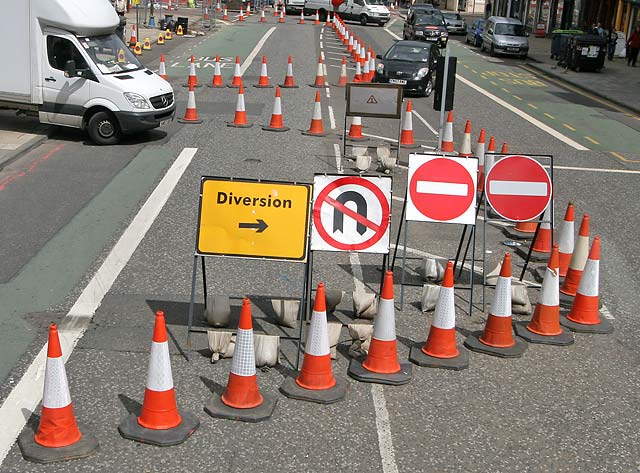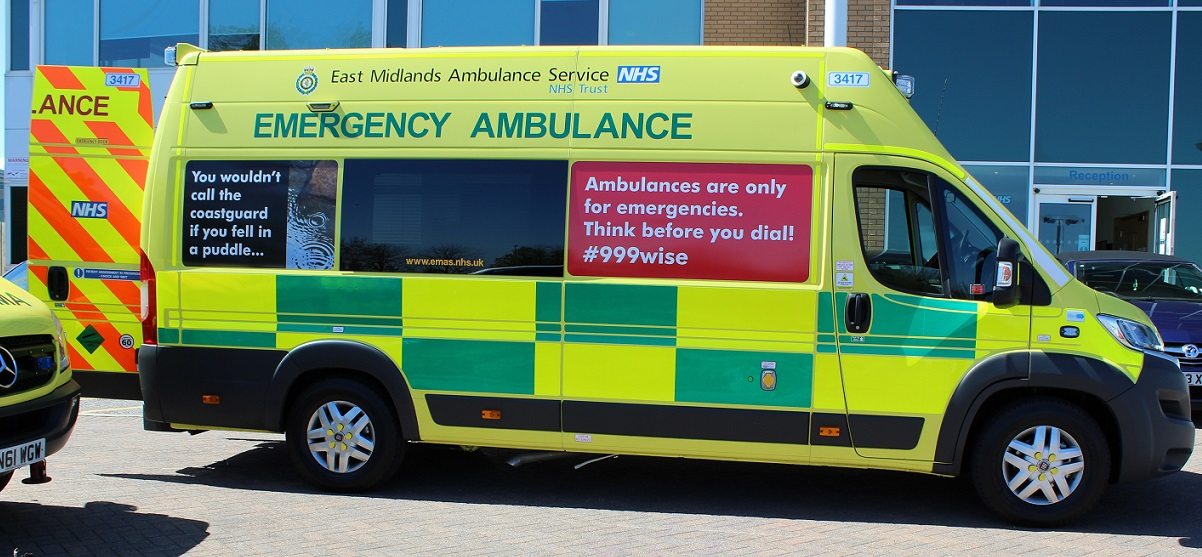Details: Roadworks Bulletin 17 July
Monkeys in the Park – 16 July 2pm
My two allowed questions at tonight’s council meeting – The Grenfell Tower Fire and the Lack of School Places
Oldham Council 12 July 2017 – Leader’s Question 1 – The Grenfell Tower Fire
Mr Mayor, I am sure that every member in this Chamber will have been as horrified as I was to see the images of the devastating fire at Grenfell Tower and the impact that it had on both the building, the tower’s residents and its’ neighbours.
The latest estimate is that there will be at least eighty lives lost; many residents are still missing; and the survivors of the blaze remain traumatised; coping with injuries and missing loved ones; without any possessions and with no certainty about their future housing circumstances.
Mr Mayor, it would be remiss of me at this point not to condemn the woeful response of this Government to the needs of the fire’s victims and the shameful absence of Prime Minister; Theresa May in the aftermath of this enormous tragedy. Strong and stable – I think not.
I have a stark message for the Prime Minister – it is your job to lead the nation in times like this and on this occasion you failed miserably.
It would also be true to say, in my opinion, that the local council for the area; Kensington and Chelsea; was an embarrassment to all involved in local government.
Both the Officer and Political Leadership of that council has failed their residents big time!
I am pleased to say this is in stark contrast to Oldham Council when we have had to face emergencies such as Maple Mill and the tragic gas blast in Shaw.
On a more positive note, it was however a tremendous relief to learn, following enquiries made by my Liberal Democrat colleague; Councillor Chris Gloster; that none of the tower blocks in this Borough have been clad with any inflammable material as Grenfell appears to have been.
At a time like this, I am sure the Leader will want to reassure members of this Chamber; and more importantly the residents of our Borough’s tower blocks; and their friends and relatives; that all of the components of any type of external cladding system used in this Borough are safe.
Also that the evacuation procedures for tower blocks in Oldham have been thoroughly reviewed in recent days to ensure that they are up-to-date and follow best practice.
Mr Mayor, I would like to ask the Leader for this reassurance tonight and also for a brief summary of what the current advice to tenants and occupants of such tower blocks is in the event of a fire?
Also what is happening to other public buildings in the Borough that could possibly be clad with similar materials as used in Grenfell such as leisure facilities, education buildings and health service accommodation to name just three?
Council 12 July 2017 – Leader’s Question 2 – School Places
For my second question to the Leader tonight, Mr Mayor, I want to return to an issue that I have raised many times in this Chamber before – namely the education of our Borough’s children.
I was disappointed, and, in all honesty, sad, to read recently that once more Oldham was bottom of the class when it came to the number of our children who miss out on attending a secondary school of their choice.
And I am not just talking here about pupils (and their parents) not getting their first choice of school – I am talking here about them not getting their second or third choices either!
In this Borough almost 9 percent – to be exact 8.9 per cent – did not secure a place to start at ANY of their preferred schools in September, which is nearly 1 in 10 pupils or approximately 300 of them!
So now we have another mark of failure against our education system as according to the Department for Education, Oldham was the sixth worst performer in the country and the worst in the North West for school choices.
Compare this to the national figure – 3.6 percent – we are three times higher! Three times as many denied the secondary place that they seek.
The Borough is also second worst in the region for the percentage of pupils being offered a place at their first preference school, 74.8 per cent compared to 83.5 per cent nationally.
Compare this to Rochdale where nearly 94 percent of pupils got their first preference school and only 1.5 percent of pupils in Rochdale did not get a place at one of their three preferred schools.
In Oldham our primary sector is not much better; 6 percent pupils or 181 children; failed to get a place in their first, second or third choice schools.
It is scandalous – we can do better, much better and we must do better, for the sake of our children and their educational future.
Because if we do not offer children a place at a secondary school that they want to go to we are hardly providing them with an inspiring start to help spur them on to do their level best in their final years of compulsory schooling.
I look forward to the Council meeting when I can ask the Leader a positive question about education in our Borough – but I am sorry to say that with the current level of performance that I cannot see this as being at any point soon.
Let’s hope that the new Saddleworth School, the new Royton and Crompton School and the expanded Crompton House School and Oasis Academy will be able to meet the educational expectations of all of our young people; but these are long-term and not immediate gains, and some of them are still far from certain.
So my second question to the Leader tonight is; what is being done now to ensure that every child in our Borough receives a secondary school place of their choice in the future?
Free Summer Activities for Shaw and Crompton youngsters
Lib Dems propose Lowering Drink Drive Limit to Save Lives
 The Oldham Liberal Democrats will propose a motion to Council (12th July) that England’s drink drive limit be reduced to bring it into line with Scotland and many European countries.
The Oldham Liberal Democrats will propose a motion to Council (12th July) that England’s drink drive limit be reduced to bring it into line with Scotland and many European countries.
Proposing the motion, Shaw Lib Dem Councillor Chris Gloster said:
“I spent thirty years in the Police service, twenty five of which were spent as a roads policing officer at different levels. My final role was as a senior officer investigating road collisions where tragically there had been deaths or serious injuries.
“I have seen first-hand the misery that drink-driving brings to families, and continues to bring them every day; yet there are mixed messages for motorists. The Government tells motorists not to drink and drive, but then advocates two pints and you are likely to be ok to drive. The message should be none for the road and the limit should be reduced to be in line with the majority of Europe at least”.
The current limit in the majority of the United Kingdom is 80 microgrammes (mg) per 100millilitres (ml) of blood. This is the highest limit in Europe, shared only by Malta. Scotland has however recently reduced its drink drive limit to 50mg per 100ml of blood mirroring the limit in many European countries, and Northern Ireland is currently considering the same measure.
Cllr Gloster explained the rationale for the reduction: “A lower limit will make people think twice about that extra drink. Everyone has different tolerance levels to alcohol and the current level can make someone unfit to drive, even though they are not over the legal limit of 80 microgrammes of alcohol in their blood. I am confident that a lower limit will save lives”.
In 2014, on average 5 people a day were killed and 62 seriously injured on Britain’s roads. Statistics show that on average nearly 1 in 6 collisions that result in a fatality, the driver is in excess of the legal alcohol limit for driving.
New statistics show that older motorists are drink-driving in record numbers. The number aged 65 and above involved in smashes rose from 1,295 in 2005 to 1,435 by 2015. Those involving drivers under 19 fell from 6,744 to 1,436.
The motion is backed by the Cllr Gloster’s Shaw colleague, Lib Dem Leader Cllr Rod Blyth: “I am grateful to Chris for bringing this important issue to the attention of full Council.
“The current position is illogical in law, and must be bewildering to the motorist, when a driver under the legal limit in England, can be immediately prosecuted once they cross the Scottish border.
“We need consistency in our treatment of drivers wherever they consume alcohol within the United Kingdom. Scotland has reduced the limit, Northern Ireland is considering following suit, so it seems sensible for everyone to adopt the lower limit.
“And there are clearly road safety grounds for having a lower limit in place in any case.
“It is frightening that in 1966, there were 7,985 fatalities on Britain’s roads, yet by 1980, this figure had halved and by 2014 halved again. Although modern cars contain many safety features, much of the reduction is due to the introduction of the breathyliser in 1967, to Government road safety campaigns around drink-driving, and to changing public attitudes about its acceptability.
“The Oldham Liberal Democrats now feel that we need to take the drink drive limit lower to further reduce road deaths; every one of which is an individual tragedy.”
Notes:
- A 50mg limit would mean an average man would be limited to just under a pint of beer or a large glass of wine and women to half a pint of beer or a small glass of wine.
- The Czech Republic, Romania, Hungary and Slovakia have introduced a zero-tolerance policy
- Germany has a 50mg limit – but for new drivers, the limit is 0.
Source: European Transport Safety Council
The Motion reads: Lowering the Drink Drive Limit
On average 3,000 people are killed or seriously injured each year in drink drive collisions on Britain’s roads.
Nearly one in six of all deaths on the road involve drivers who are over the legal alcohol limit.
Council notes that:
- The current permitted limit in England, Wales and Northern Ireland is 80mg of alcohol per 100ml of blood
- In Scotland the limit was reduced in December 2014 to 50mg
This Council believes that, as a contribution towards a further reduction in road deaths, the drink drive limit should be reduced across England, Wales and Northern Ireland to 50mg per 100ml of blood to bring it into line with Scotland.
This Council therefore resolves to ask the Chief Executive to write to the Secretary of State for Transport, The Rt. Hon. Patrick McLoughlin MP, to outline this Council’s position and to ask him to introduce this measure as soon as is practicable.
Lib Dems motion calls to scrap domestic violence charges
The Oldham council Liberal Democrat group are proposing a motion at the full council meeting on Wednesday 12th July 20167 which will be calling on the council to join the campaign to scrap domestic violence charges.
Liberal Democrat Councillor for Saddleworth North, Garth Harkness who is proposing the motion said:
“It is traumatic enough for a domestic violence sufferer as it is. Some have gone to domestic violence centres with little. Recent legislation changes mean in order to access legal aid series in domestic violence cases, evidence from a GP letter is required. Reports of charges for GP letters have been around £75 but as much as £175 as it is outside the NHS contract. Having to find a fee for a GP letter is unreasonable and many victims will not have it. This is not acceptable. We need to support domestic violence sufferers not put up barriers”.
Seconder of the motion, Liberal Democrat Councillor, Julia Turner, Crompton said:
“Reports of domestic violence are on the increase. The government need to let innocent suffers of domestic abuse access legal aid support without the requirement to provide written evidence which will cost them money to obtain it they don’t have.. Whilst we push for the government to change the requirements we need to ask our local GPs not to charge for letters until the requirement is scrapped
“There were 1.3 million females and 600,000 males who were victims of domestic violence in 2014/15. On average 100 women and 30 men are killed every year from domestic violence. We need to support victims to get justice not hinder them”
Councillor Garth Harkness added “The council should support the campaign “Scrap the Fee” launched by Whythenshawe Safe Sports and Labour MP, Tom Watson. A stance for no fees for a letter to be used as evidence in domestic violence case is supported by many Police and Crime Commissioners across the country. They know that it has a significant impact in ensuring justice. It is time Oldham council join the campaign”
Motion Reads: Scrap the Domestic Violence Charge Fee
This Council:
- Notes that in 2014 / 15 there were an estimated 1.3 million female victims and 600,000 male victims of domestic abuse and that, on average, 100 women and 30 men a year are killed in situations involving domestic abuse.
- Remains totally committed to opposing domestic violence in all its forms, to supporting its victims, and to working for a society where all members of our community treat one another with compassion, kindness and respect.
- Believes that Government should share these priorities and is therefore bitterly opposed to Conservative Government proposals requiring victims of domestic violence seeking legal aid to provide a prescribed piece of evidence to prove they have been subjected to abuse.
- Notes that such evidence can include a letter from a General Practitioner for which some GPs charge a fee of up to £75, as this sits outside of the NHS contract.
- Believes that it is totally unreasonable to expect the victims of domestic violence to pay such a fee; that many such victims will struggle to find the fee.
Council resolves to
- Ask the Chief Executive to write to the Minister of Justice outlining this Council’s opposition to the imposition of a requirement for victims of domestic violence to produce letters or similar evidence of abuse to access legal aid and asking the Government to scrap this requirement.
- Ask the Chief Executive to write to the Borough’s three Members of Parliament and the new Mayor of Greater Manchester asking them to support this position.
- Ask the Health and Well-being Board and the Domestic Violence Partnership to contact local GPs asking them to make a commitment not to charge victims for letters until such time as this requirement is scrapped.
- Register as a supporter of the ‘Scrap the Fee’ campaign established by Tom Watson MP and Wythenshawe Safe Spots.
Commend our Emergency Services Heroes Call to Oldham Council
Councillor Chris Gloster, Oldham Council Liberal Democrat Shadow Cabinet Member for Health and Well-being, is calling on Oldham Council to commend the staff of the emergency services and local hospitals who responded with “courage, professionalism and dedication” to the recent Manchester Arena Bombing.
Councillor Gloster has submitted a motion for discussion at the next meeting of Oldham Council on Wednesday 12 July.
Being himself a former police officer of 35 years-experience, Councillor Gloster knows all too well the pressure and expectations placed upon staff in the emergency services when they are required to respond to major incidents of this nature:
“It is to their tremendous credit that although the majority of first responders had never faced an incident of such mass violence and brutality, or dealt with injuries of this type, they acted selflessly without hesitation and in so doing saved many lives that otherwise would have been lost.”
“Also in our hospitals, National Health Service staff at Accident and Emergency Units across Greater Manchester unflinchingly pulled together to treat the injured, saving lives and in some cases limbs, of those most seriously injured, and here I must particularly praise the staff of the Royal Oldham Hospital who dealt with many of the casualties.
Cllr Gloster wants the Council to recognise the extraordinary efforts of police officers, ambulance teams, fire crews and medical staff on the night of the bombing, and afterwards, but his motion also praises staff at Victoria Railway Staff for their work in minimising the disruption to public transport and the public for their response.
He added: “The many selfless acts that took place at the time of the attack and since the attack from members of the public from all walks of life, who have come together as a community to help people whom they do not know and have never met, are truly astounding. It would be remiss of me not to pay tribute to the organisers of the local vigils and the wake held at Tandle Hill and Alexandra Park, and to everyone involved in the tremendous fund-raising efforts.”
“The public’s actions demonstrate that we really are stronger as a Greater Manchester community when ‘We Stand Together’.”
The Motion reads: The Manchester Arena Bombing
Council notes with revulsion that, at 10.31 pm on Monday 22 May 2017, a terrorist attack took place at the Manchester Arena when a 22 year old British Muslim man detonated an improvised explosive device within the confines of the arena killing himself and 22 innocent adults and children and injuring a further 119 adults and children, 23 of them critically.
Although any deaths or injuries in such a terrorist outrage are horrific, the Council and people of Oldham were especially saddened to hear that amongst the dead were two women from Royton, Alison Howe and Lisa Lees.
The perpetrator of this atrocity, Salman Abedi, claimed to have performed this act of terrorism in the name of Islam.
This Council condemns terrorism in any form, and does not recognise or believe that this horrific act had anything to do with Islam, but was committed by a deranged man who had been radicalised into the mistaken belief that he would be going to a better place, when in fact his only achievement was to bring death to himself and others and worldwide condemnation of his actions from people of all religions, creeds, beliefs and people of no faith alike.
This Council recognises, and commends:
- The courage, professionalism and dedication of the many members of the Emergency Services at the scene and in local hospitals.
Although the majority of first responders had never faced an incident of such mass violence and brutality, or dealt with injuries of this type, they acted selflessly without hesitation and in so doing saved many lives that otherwise would have been lost.
In our hospitals, National Health Service staff at Accident and Emergency Units across Greater Manchester, unflinchingly pulled together to treat the injured, saving lives and in some cases limbs, of those most seriously injured.
Council notes that many of these casualties were treated at the Royal Oldham Hospital.
- The many selfless acts that took place at the time of the attack and since the attack from members of the public from all walks of life, who have come together as a community to help people whom they do not know and have never met.
Council especially commends the local vigils held and the tremendous fund-raising effort to support the victims of this tragedy and their families.
- The work of staff of Transport for Greater Manchester, Metrolink and bus and rail companies in seeking to minimise the disruption to public transport services resulting from the closure of Victoria Station.
In recognition of these efforts, this Council directs the Chief Executive to write to:
- The Chief Constable, Greater Manchester Police
- The Chief Constable, British Transport Police
- The Chief Fire Officer, Greater Manchester Fire and Rescue Service
- The Chief Officer, North West Ambulance Service
- The Chief Executive, NHS Pennine Acute Trust
- The Chief Executive, Transport for Greater Manchester
To extend the gratitude and admiration of Council for the efforts of their staff both on the night and post incident.
Furthermore, Oldham Council places on record its admiration for the general public of Greater Manchester in facing up to the enormity of this tragedy; the public’s actions have demonstrated that we really are stronger as a Greater Manchester community when ‘We Stand Together’.
101 – police non-emergency number
 Response to our recent letter about this.
Response to our recent letter about this.
Subject: GMP 101 Service complaint letter.
Ms Williamson,
Good afternoon.
I have been passed a complaint letter that you have sent to the PCC’s office on the 15th June. Apologies for the delay in response, it has come via a few other avenues to get to me.
The complaint regards the length of time waiting for 101 calls to be answered and police investigation.
I cannot comment on the police investigation side of things, other than an investigation will only take place if a police incident has been created that requires investigation.
Before that of course, a phone call from a member of the public needs to be answered by GMP to take their report.
GMP analysts look back at the last two years of data to be able to forecast the number of calls we might take at any time of any day, down to 15 minute segments of information. Knowing the forecasted number of calls, allows us to know how many staff we need on that hour. The National Service Level Agreement for answering 999 calls sits at 90% to be answered within 10 seconds.
There is no National Service Level Agreement for answering 101 calls.
We do compile and keep data on all responses, and yesterday for example the average wait time for a 101 call to be answered was 3 minutes and 9 seconds and we answered 87% of our 999 calls within target.
If I take another example as the day you have written in, 15th June.
As mentioned above, we can analyse how many calls we expect to take on a date and are normally to within 3%.
On 15th June we expected to take 1376×999 calls and 2316×101 calls.
We actually took 1714×999 calls and 2641×101 calls.
Well before 15th June analysts would have looked at how many staff we need on that day, per hour, as number of calls per hour varies with the busier times being an evening. Taking a set time of 9pm at night, on that night, I needed 33 call-handlers on duty to manage the expected demand. I had 29. This is what we call “minus 4 for the hour.”
A call-handler is expected to take just over 6 calls an hour, the average call length is over 6 minutes a call with most calls requiring “after call work” – this can range from updating intelligence to passing to other areas of the business meaning a call-taker should be available to take a call 70% of the hour.
Back to 15th June at 21:00. We were forecast combined (101 and 999) calls of 209 calls, we took 274. I was already at minus 4 staff, so 4 staff x 6 calls the hour each is 24 possible calls missed already, out of a difference of 65 extra expected calls as it was. This shows how much demand can vary. The weather is always a feature of calls made too. Nice weather prompts more outside activity, youths playing out, music from gardens, drink related calls and other types of call.
Essentially the reduced capacity in answering 101 calls is down to the priority of 999 calls being answered as a HMIC target and reduced staffing via the austerity measures. On Friday night this weekend there will be hours when we are minus 12 to minus 14, that’s 14 call-handlers under how many we should have to take the expected number of calls. That’s at least 88 calls per hour we are probably going to struggle to answer in a timely manner.
Whilst not assisting your constituents in their request to get calls answered sooner, I hope the above goes someway to showing the challenges we are currently facing in reaching demand. GMP are committed to providing an excellent service to the public, which is why as part of my role we are always looking at ways to improve contact management.
Please feel free to contact should I be able to provide further assistance.
Regards,
Neil Smitham
OCB Call-Handling Manager
Free Summer Activities for Shaw and Crompton youngsters
Oldham Mind – mental health issues and support for young people
 Details for help and advice: sort-it-a6-postcard-1
Details for help and advice: sort-it-a6-postcard-1







